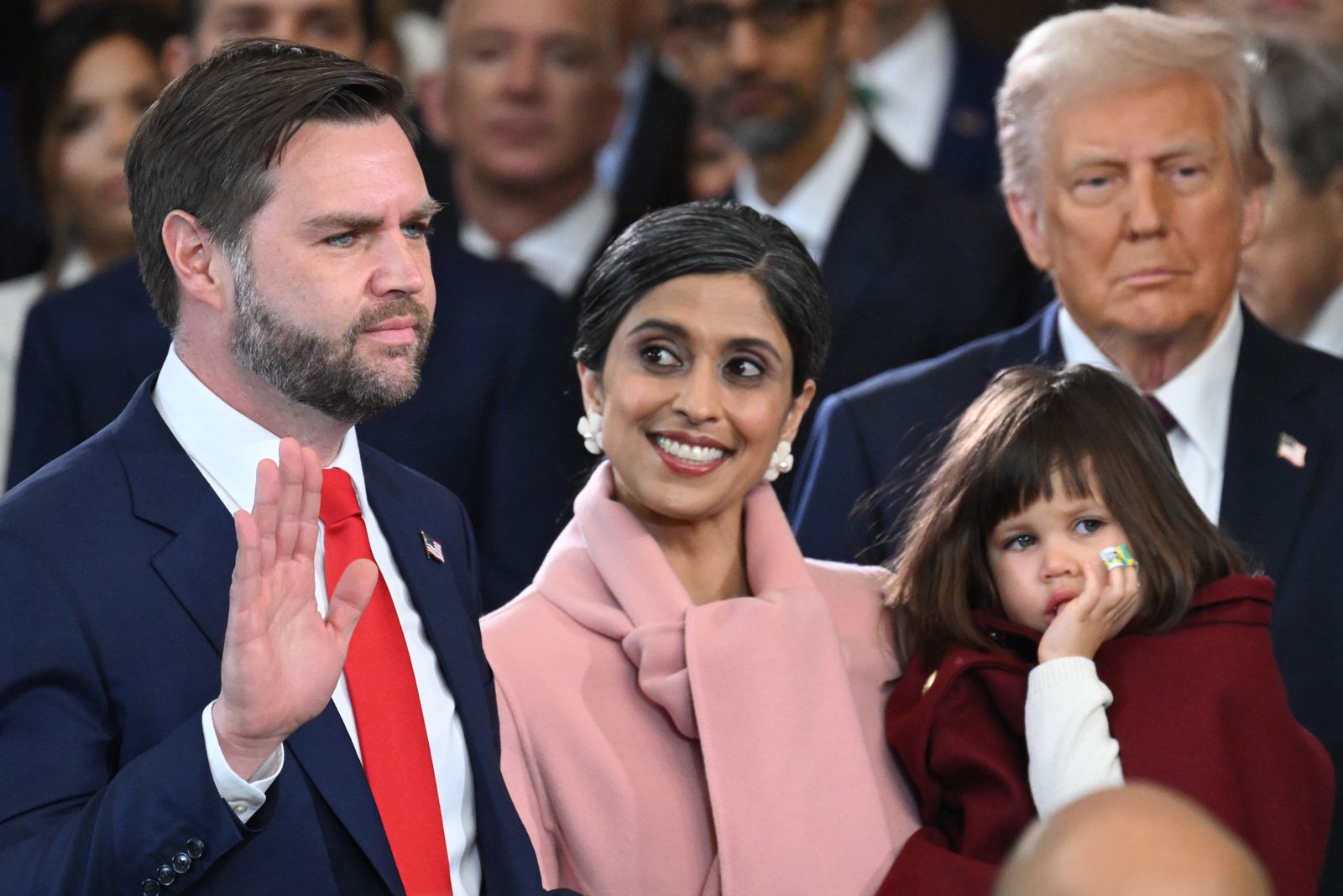Usha Vance, the second lady of the United States and wife of vice president JD Vance, didn’t think anyone would notice, let alone care, when in March she and her husband headed out for a date night at the Kennedy Center. She thought wrong.
In her first interview since Donald Trump moved back into the White House, and she and her family took up residence in the Naval Observatory, Vance told the Free Press about getting booed by the crowd that night.
“It was about 20 or 30 seconds of some people booing and delaying the start of the concert, right as the conductor is about to come out, and there were a few other people clapping,” Vance recalled, noting that someone shouted “oh, fuck him!” up at their balcony seating, and someone else urged the building to “kill that light” to hide the couple from view. “JD waved at them, and then we enjoyed the show that we had come for.”
This is just one of the ways that Vance, who elsewhere in the interview advocates for reading “paper books” and shares that her “highest priority right now is to be actually a normal person,” has had to adjust to her new life in its latest chapter. Her journey has already taken her to many previously unfamiliar territories: Yale, her husband’s native Ohio (not Appalachia, as his detractors are quick to clarify), clerking for a pre-Supreme Court Brett Kavanaugh, (one of two highly desirable clerkships with a “superhot judge” at the time, a former classmate told the Free Press), a white shoe law firm, and now Washington, DC’s most gilded halls.
Despite the lengthy piece being her supposed formal introduction to the public, Vance, the woman whom Trump on his inauguration day called “the only one smarter than [JD],” remains largely mysterious.
“I would have chosen her,” Trump said then of choosing his vice president, “but somehow the line of succession didn’t work that way. She’s great.”
Vance told the Free Press that “It’s a very strange life that we lead, where there are lots of people who have just imagined all sorts of narratives about us and what we think and what we do and why we do it and how much planning goes into it and all these sorts of things.”
The narrative offered by former law school classmate and pal James Eimers, one of the few named sources in the article, is that Vance is “selfless” and has a “superhuman capacity to achieve.”
To demonstrate how nice she is, he told a story about furniture.

